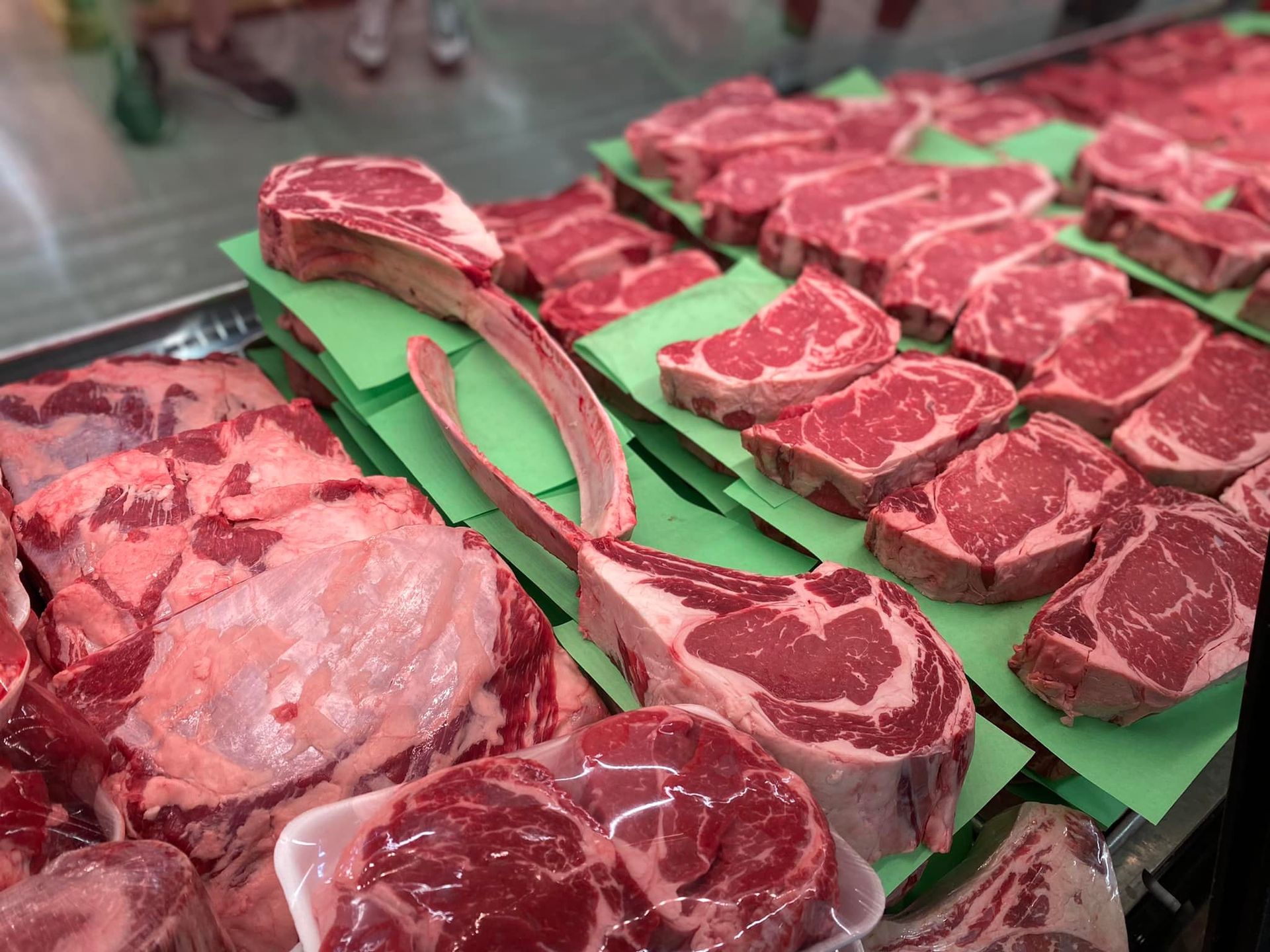Why Shopping at a Neighborhood Meat Market Guarantees Fresh, High-Quality Cuts
Purchasing at a neighborhood meat market supplies distinctive benefits that typically go undetected by consumers accustomed to larger retail chains. The implications of picking local extend beyond prompt benefits, motivating a better assessment of what this option genuinely indicates for both customers and the regional economy.
Advantages of Local Sourcing
In the world of food procurement, the benefits of local sourcing attract attention prominently. By acquiring meat from regional markets, consumers obtain straight accessibility to products that are often fresher and a lot more delicious than those discovered in larger, business supermarkets. Regional sourcing decreases the moment and distance food takes a trip from farm to table, which not just boosts taste yet also preserves dietary value.

In addition, local sourcing usually provides openness pertaining to the beginnings of the meat. Customers can inquire about the farming techniques made use of, pet well-being criteria, and whether the meat is grass-fed or natural. This details empowers shoppers to make informed decisions straightened with their worths.
Quality Assurance Specifications
Local meat markets often stick to strenuous quality assurance requirements that guarantee the products provided meet high safety and freshness standards. These requirements usually include various phases of the meat manufacturing process, from sourcing to taking care of and storage space.
First, regional markets often develop strict supplier standards, guaranteeing that just respectable ranches and manufacturers are utilized - bagley meat market edwardsville il. This minimizes the probability of contamination and advertises greater animal welfare criteria. Additionally, several local meat markets implement normal assessments to verify that the meat is processed under sanitary problems, further reducing wellness risks
Temperature control is another critical aspect of quality control. Local meat markets often monitor refrigeration systems to preserve optimal storage temperature levels, making certain that meat stays secure and fresh for intake. Furthermore, the application of traceability systems permits markets to track the beginning of their items, providing transparency and responsibility.
Lastly, team at regional meat markets are usually trained to recognize indicators of putridity and comprehend correct handling techniques. This commitment to high quality control not just elevates the general criterion of the meat yet also cultivates consumer depend on, making neighborhood meat markets a dependable source for top notch cuts.
Sustaining Neighborhood Farmers
Supporting regional farmers is necessary for promoting a sustainable food system and enhancing neighborhood durability. When customers select to patronize neighborhood meat markets, they directly add to the livelihoods of farmers in their region. This not just sustains the regional economic climate yet additionally strengthens the agricultural industry, guaranteeing that it remains lively and feasible.


Furthermore, sustaining regional farmers promotes a sense of area and connection between producers and customers. It urges transparency in food sourcing and instills trust, view it as clients can create relationships with the individuals who raise their food. This direct link inevitably leads to an extra involved and educated public, which is critical for promoting for lasting agricultural methods in the future.
Sustainable Practices
Sustainable practices in meat markets play an essential function in advertising ecological stewardship and guaranteeing animal welfare. Local meat markets typically focus on sourcing their items from farms that carry out lasting and honest farming approaches. These methods include rotational grazing, which aids keep dirt wellness and lowers carbon exhausts, alongside lessening using prescription antibiotics and hormonal agents in animals.
Furthermore, regional meat markets usually highlight openness in their supply chains. Customers are given with information regarding the origin of their meat, enabling them to make informed selections that align with their values. By sustaining local farmers that practice lasting techniques, customers add to the preservation of biodiversity and the reduction of transport emissions linked with long-distance meat circulation.
In addition, many local meat markets participate in waste reduction approaches, such as using every component of the pet and promoting off-cuts that might otherwise go unsold. By fostering a much more lasting method to meat consumption, these markets not only give premium items but also contribute favorably to the atmosphere and pet welfare. Fundamentally, purchasing at a local meat market aligns consumers with a wider activity in the direction of moral and responsible food sourcing.
Customized Customer Support
Shopping at a meat market frequently incorporates even more than just the products supplied; it is likewise concerning the experience and the partnerships built between consumers and team. Personalized customer support is a characteristic of neighborhood meat markets, setting them aside from larger grocery store chains. Educated personnel put in the time to comprehend specific consumer choices, ensuring that each see is tailored to particular requirements.
Customers take advantage of experienced suggestions on cuts, food preparation techniques, and prep work tips, fostering a sense of trust and loyalty. This individualized interaction allows customers to ask questions and look for suggestions, leading to notified purchasing decisions. Employee typically keep in mind regular clients and their choices, developing an inviting environment that cultivates neighborhood connections.
Furthermore, individualized solution encompasses unique requests, such as customized cuts or specific preparation techniques, which larger retailers might not fit. This level of attention enhances the commitment of regional meat markets to high quality and client complete satisfaction.
Fundamentally, individualized customer support not just improves the shopping experience yet also makes certain that clients entrust the very best items fit to their culinary demands, making every check out a rewarding one.
Final Thought
Supporting local farmers fosters area relationships and enhances the neighborhood economic situation, while lasting practices contribute to environmental stewardship. Furthermore, individualized customer service improves the purchasing experience, making neighborhood meat markets a recommended choice for consumers seeking both quality and honest considerations in their food sourcing.
The implications of picking regional prolong past prompt advantages, motivating a more detailed evaluation of what this Continued option genuinely like it indicates for both customers and the local economic situation.
Sustaining local meat markets likewise adds to the regional economic climate. Regional meat markets often keep an eye on refrigeration systems to maintain optimum storage space temperature levels, making certain that meat continues to be fresh and secure for usage.Neighborhood farmers are frequently much more attuned to the particular needs of their communities, raising and growing plants animals that line up with local preferences and preferences. Supporting local farmers promotes neighborhood relationships and strengthens the neighborhood economic climate, while sustainable practices add to ecological stewardship.